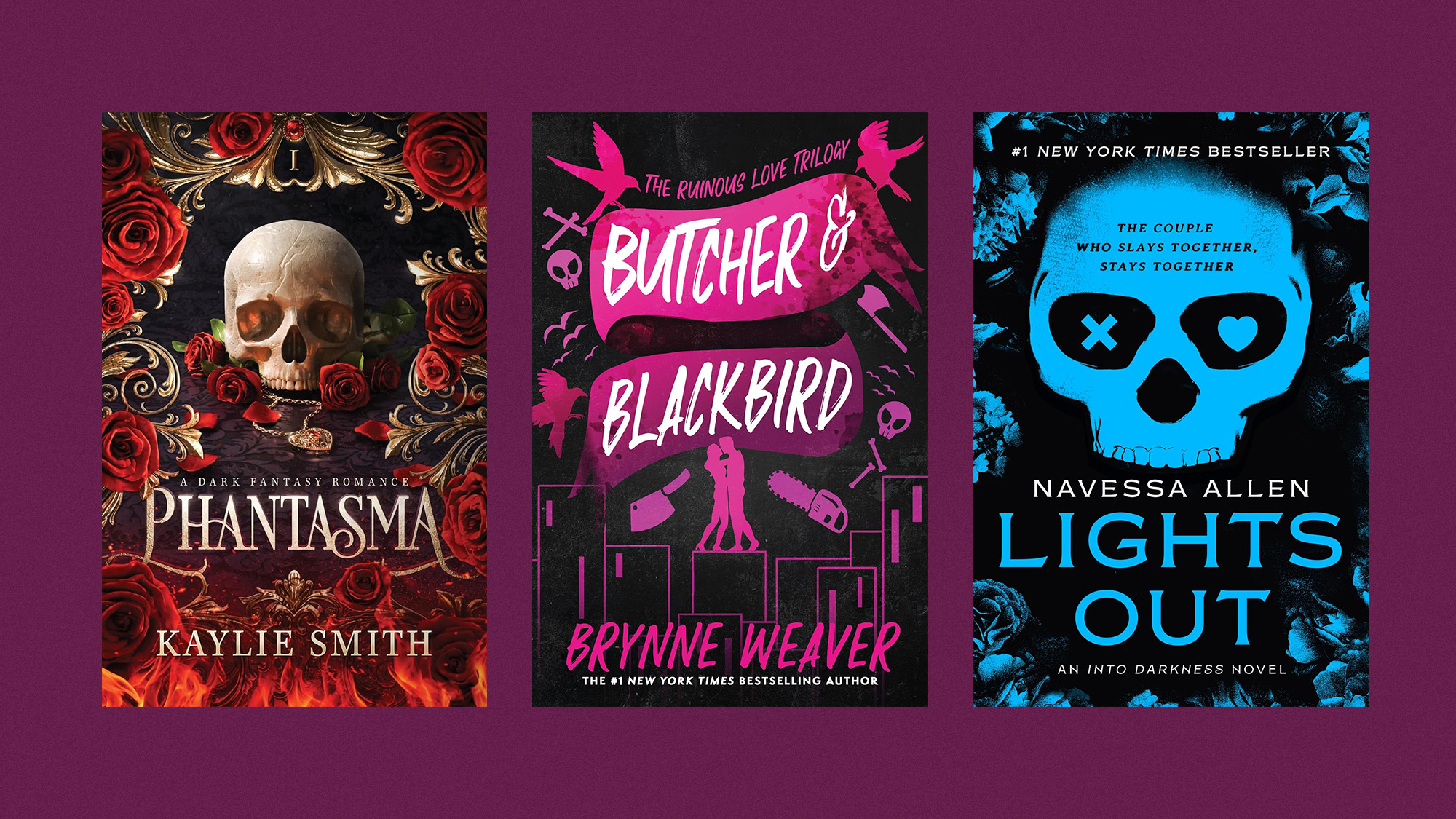The 'furious dogfight' over literary festival sponsorship
Baillie Gifford has cancelled all its deals with book events after pressure from activists

A free daily email with the biggest news stories of the day – and the best features from TheWeek.com
You are now subscribed
Your newsletter sign-up was successful
Normally characterised by "white tents fluttering" in the breeze and the "swish of turning pages", this summer's book festivals have become "embroiled in a furious political dogfight", said Susie Goldsbrough in The Times.
The Hay, Edinburgh and Borders literary festivals cut ties with asset management firm Baillie Gifford after climate and anti-Israel activist group Fossil Free Books questioned the "ethics" of the sponsorship arrangements, Goldbrough wrote.
Baillie Gifford has now cancelled all of its remaining sponsorship deals with literary festivals, leaving the future of the events in doubt.
The Week
Escape your echo chamber. Get the facts behind the news, plus analysis from multiple perspectives.

Sign up for The Week's Free Newsletters
From our morning news briefing to a weekly Good News Newsletter, get the best of The Week delivered directly to your inbox.
From our morning news briefing to a weekly Good News Newsletter, get the best of The Week delivered directly to your inbox.
'Rash and silly move'
The loss of Baillie Gifford's money will be "catastrophic" for British book festivals, said Goldbrough, and there is a "dawning sense" that other companies "won't exactly be queueing up to take its place".
The Scottish company is one of Britain's "best and most far-sighted investment management firms", said James Price in City A.M., and its support for book festivals has included "huge charitable efforts" aimed at improving literacy for the poorest people in Britain. That will end now, for "absolutely no gain or benefit to humanity whatsoever".
The Hay Festival has been at the "forefront of the climate change discussion and has given more time and space to the topic than any of its competitors", said Dylan Jones in the London Evening Standard. "They are the good guys here", while Fossil Free Books has "come across like a bunch of petulant teenagers".
If the activists want to "pick on someone", why choose festivals that are "world-renowned for spirited defence of free speech" and offer a "rigorous interrogation of cultural, political and environmental injustice"?
A free daily email with the biggest news stories of the day – and the best features from TheWeek.com
When the country's largest literary festival parts ways with its main sponsor, it's "usually a disaster for the festival", said Sam Leith in The Spectator. So this seems a "rash and silly move" because although Baillie Gifford is "not perfect", who is?
The "very many other" investment firms that are "ear-deep" in "arms companies, rare earth metals, child exploitation, fracking, seal clubbing and so forth", don't get stick because "bien pensant literary folk have never heard of them".
'Healthier future'
Author Max Porter has defended Fossil Free Books as "calm, informed and courteous". People act as if it is "trying to kill book festivals, instead of working to imagine a healthier future for them", he said.
Speaking to The Observer, Porter denounced the "bad-faith arguments, defeatism, defensiveness and rusty culture war formulations" hurled at the activist group. He insisted that its members "simply believe in the adaptation and survival of our most vital communal spaces as writers and readers, through the distancing of these spaces from financial complicity in genocide or unsustainable fossil fuel investments".
Like "any private sponsor of the arts", Baillie Gifford "doesn't lavish hundreds of thousands of pounds on these events every year out of a sense of unalloyed altruism", said Carlos Alba in The Herald. It does so "because of the image it creates, that it is not a faceless, capitalist behemoth, devoid of a cultural and intellectual hinterland".
So "in return for that, it should come as no surprise when organisations like Fossil Free Books want to kick the tires and look under the bonnet", he added.
Writing on social media, Charlotte Church, who became the public face of the campaign against Baillie Gifford, said she was "so proud of all the people in the world who are standing up for precious life and risking personal safety and reputational loss".
She added that "the courage we're seeing from activists all over the world is deeply humbling".
Chas Newkey-Burden has been part of The Week Digital team for more than a decade and a journalist for 25 years, starting out on the irreverent football weekly 90 Minutes, before moving to lifestyle magazines Loaded and Attitude. He was a columnist for The Big Issue and landed a world exclusive with David Beckham that became the weekly magazine’s bestselling issue. He now writes regularly for The Guardian, The Telegraph, The Independent, Metro, FourFourTwo and the i new site. He is also the author of a number of non-fiction books.
-
 Political cartoons for February 20
Political cartoons for February 20Cartoons Friday’s political cartoons include just the ice, winter games, and more
-
 Sepsis ‘breakthrough’: the world’s first targeted treatment?
Sepsis ‘breakthrough’: the world’s first targeted treatment?The Explainer New drug could reverse effects of sepsis, rather than trying to treat infection with antibiotics
-
 James Van Der Beek obituary: fresh-faced Dawson’s Creek star
James Van Der Beek obituary: fresh-faced Dawson’s Creek starIn The Spotlight Van Der Beek fronted one of the most successful teen dramas of the 90s – but his Dawson fame proved a double-edged sword
-
 Book reviews: ‘Bonfire of the Murdochs’ and ‘The Typewriter and the Guillotine’
Book reviews: ‘Bonfire of the Murdochs’ and ‘The Typewriter and the Guillotine’Feature New insights into the Murdoch family’s turmoil and a renowned journalist’s time in pre-World War II Paris
-
 Book reviews: ‘Hated by All the Right People: Tucker Carlson and the Unraveling of the Conservative Mind’ and ‘Football’
Book reviews: ‘Hated by All the Right People: Tucker Carlson and the Unraveling of the Conservative Mind’ and ‘Football’Feature A right-wing pundit’s transformations and a closer look at one of America’s favorite sports
-
 Book reviews: ‘Vigil: A Novel’ and ‘Fear and Fury: The Reagan Eighties, the Bernie Goetz Shootings, and the Rebirth of White Rage’
Book reviews: ‘Vigil: A Novel’ and ‘Fear and Fury: The Reagan Eighties, the Bernie Goetz Shootings, and the Rebirth of White Rage’Feature Taking on the space between life and death and a look back at a 1984 shooting that shocked New York City
-
 The best fan fiction that went mainstream
The best fan fiction that went mainstreamThe Week Recommends Fan fiction websites are a treasure trove of future darlings of publishing
-
 Book reviews: ‘The Mattering Instinct: How Our Deepest Longing Drives and Divides Us’ and ‘Family of Spies: A World War II Story of Nazi Espionage, Betrayal, and the Secret History Behind Pearl Harbor’
Book reviews: ‘The Mattering Instinct: How Our Deepest Longing Drives and Divides Us’ and ‘Family of Spies: A World War II Story of Nazi Espionage, Betrayal, and the Secret History Behind Pearl Harbor’Feature The pursuit of ‘mattering’ and a historic, devastating family secret
-
 The best dark romance books to gingerly embrace right now
The best dark romance books to gingerly embrace right nowThe Week Recommends Steamy romances with a dark twist are gaining popularity with readers
-
 Book reviews: ‘American Reich: A Murder in Orange County; Neo-Nazis; and a New Age of Hate’ and ‘Winter: The Story of a Season’
Book reviews: ‘American Reich: A Murder in Orange County; Neo-Nazis; and a New Age of Hate’ and ‘Winter: The Story of a Season’Feature A look at a neo-Nazi murder in California and how winter shaped a Scottish writer
-
 Book reviews: ‘The Score: How to Stop Playing Somebody Else’s Game’ and ‘The Sea Captain’s Wife: A True Story of Mutiny, Love, and Adventure at the Bottom of the World’
Book reviews: ‘The Score: How to Stop Playing Somebody Else’s Game’ and ‘The Sea Captain’s Wife: A True Story of Mutiny, Love, and Adventure at the Bottom of the World’Feature Comparing life to a game and a twist on the traditional masculine seafaring tale